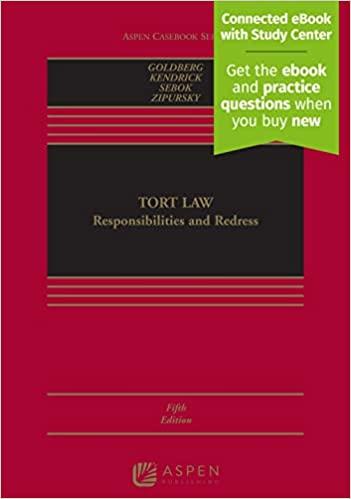Question
The Marijuana Regulatory Dilemma In the United States in 1996, California's voters legalized the sale of marijuana for medical use. Since then, over 25 more
The Marijuana Regulatory Dilemma
In the United States in 1996, California's voters legalized the sale of marijuana for medical use. Since then, over 25 more states have done the same; however, it has yet to be approved on the federal level. This provides a dilemma for businesses in those states that regularly test employees for substance abuse. In Coats v. Dish Network, a Colorado employee who is quadriplegic and used medical marijuana outside of working hours sued for wrongful termination of his job after he tested positive for marijuana. The confusing legal landscape led to his claim that Colorado labor laws (i.e., state laws) deemed his use of marijuana legal and thus his termination illegal. The Colorado Supreme Court ruled against Mr. Coats, however, because Mr. Coats broke the law by using a product that is illegal under the federal Controlled Substances Act. This case highlights the confusing and complex issues of drug policy and law in the United States. Contradictions between state and federal statutes also cross over to the sales of recreational marijuana. In 2014 in the United States, the states of Colorado and Washington began selling it for recreational use and Oregon and Alaska recently approved its sale. Proponents of the legalization of marijuana at the federal level note that regulated markets protect consumers, raise revenues, reduce the costs of enforcement, and put criminals out of business. Arguments against it capture those from the states who have opposed it up-to-date: the public health effects of marijuana, the increased tax burden, the danger of cannabis "edibles" to young children, and its potentially addictive nature. The legalization of marijuana has been more of a debate in the United States than in other countries, particularly because of the contradictions between state and federal laws. Much of Europe has embraced the sale of medical marijuana, and Australia recently announced similar plans. Jamaica has legalized "ganja" for broadly defined religious purposes and Spain allows users to grow and buy it through small collectives. At the time of this writing, Canada had plans to legalize it for recreational use in 2017.
1. What are the ethical issues in this case? Who are the stakeholders, and what are their stakes?
2. How are the two issues differentthe legalization of marijuana for medical use versus the legalization of marijuana for recreational use?
3. U.S. state versus federal law makes this issue particularly complex. What are other examples of industries where U.S. state and federal law are seemingly at odds?
4. What actions should the federal government take to help resolve this conflict between federal and state laws?
Step by Step Solution
There are 3 Steps involved in it
Step: 1

Get Instant Access to Expert-Tailored Solutions
See step-by-step solutions with expert insights and AI powered tools for academic success
Step: 2

Step: 3

Ace Your Homework with AI
Get the answers you need in no time with our AI-driven, step-by-step assistance
Get Started


